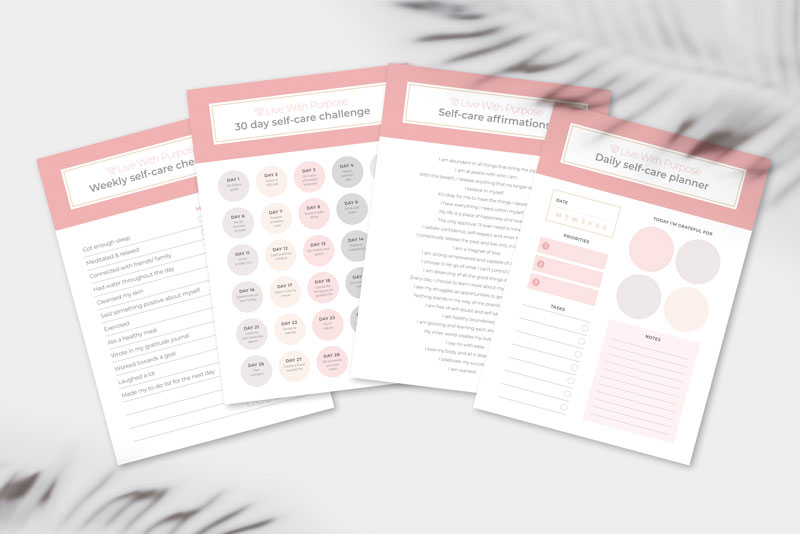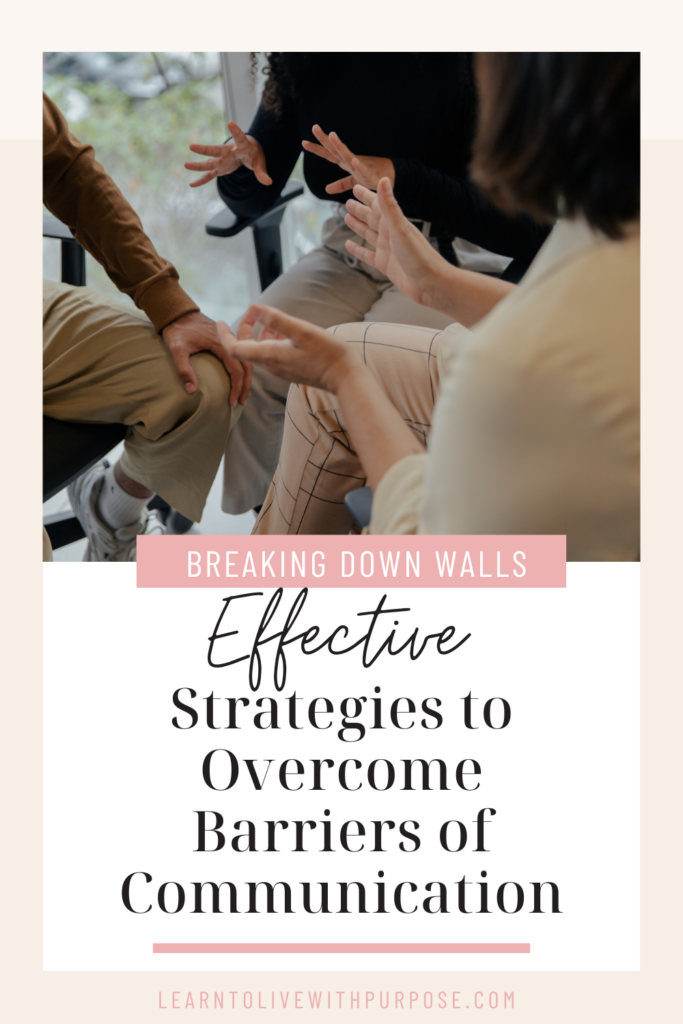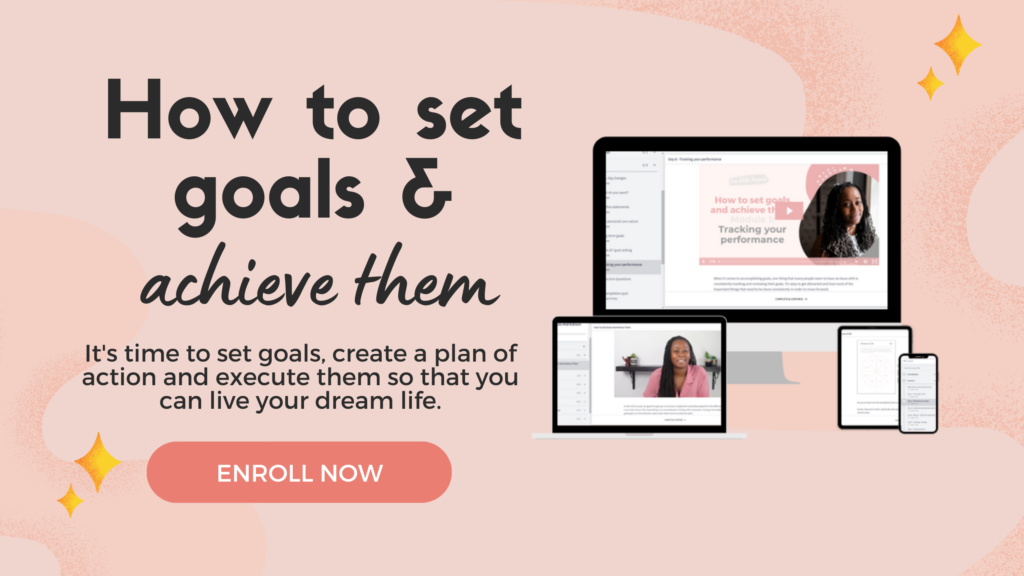
Communication is the lifeblood of relationships, both personal and professional. However, barriers to effective communication can hinder the exchange of ideas, lead to misunderstandings, and strain relationships. 🫠
In this comprehensive guide, we will explore common barriers to communication and provide practical strategies to overcome them.
Whether you’re navigating workplace dynamics, fostering better connections with friends and family, or seeking to improve your overall communication skills, these insights will help you break down the walls that impede effective communication. 🙂
Let’s get started!
Understanding Barriers to Communication:
1. Lack of Clarity and Precision:
One of the fundamental barriers to effective communication is a lack of clarity. Vague or imprecise messages can lead to confusion and misinterpretation. It’s essential to articulate your thoughts clearly, using precise language and providing relevant details to ensure your message is accurately received. 😊
2. Emotional Barriers:
Emotional barriers, such as stress, anxiety, or strong emotions, can impede communication. When individuals are emotionally charged, they may struggle to express themselves clearly or be receptive to others. Managing emotions and creating a calm environment are crucial for effective communication.

3. Cultural and Language Differences:
Cultural and language diversity can create barriers to communication. Differences in language proficiency, communication styles, and cultural norms may lead to misunderstandings.
To overcome this barrier, it’s essential to foster cultural awareness, be patient with language differences, and use clear and straightforward language. 😊
4. Noise and Distractions:
Physical and environmental factors, such as noise and distractions, can interfere with communication. Whether it’s background noise, technological disruptions, or a busy environment, minimising distractions enhances the clarity and effectiveness of communication. 👂

5. Assumptions and Stereotypes:
Preconceived assumptions and stereotypes can create barriers by influencing how we interpret messages. Avoid making assumptions about others’ perspectives or intentions. Instead, approach communication with an open mind, seeking to understand diverse viewpoints without judgment. 🧠
6. Lack of Feedback:
Communication is a two-way process, and the absence of feedback can be a significant barrier. Encourage open dialogue, actively seek input from others, and provide constructive feedback. Creating a feedback loop ensures that messages are received and understood and not going in one ear and out the other.

7. Poor Listening Skills:
Ineffective listening is a pervasive barrier to communication. When individuals fail to actively listen, they miss important details, leading to misunderstandings. Improving listening skills involves giving full attention, avoiding interruptions, and practicing empathy to understand the speaker’s perspective. 😊
8. Power Dynamics and Hierarchies:
Unequal power dynamics or hierarchies within relationships or organisations can stifle open communication. Those in lower positions may feel hesitant to express their thoughts or concerns. Fostering an inclusive and open communication culture helps overcome these power-related barriers. 🫂
Strategies to Overcome Communication Barriers:
1. Prioritise Clarity in Communication:
- Articulate Clearly: Use clear and concise language when conveying your message. Avoid jargon or overly complex terms that may confuse the listener.
- Provide Context: Offer relevant background information to ensure your message is fully understood. Context helps the listener connect the dots and interpret your message accurately.
- Encourage Clarification: Create an environment where others feel comfortable seeking clarification. Encouraging questions can help address potential misunderstandings. 🤗

2. Emotional Intelligence and Regulation:
- Self-Awareness: Develop an understanding of your own emotions. Recognise how emotions may impact your communication style and be mindful of potential emotional triggers.
- Empathy: Practice putting yourself in others’ shoes. Empathetic communication involves understanding others’ perspectives and responding with sensitivity.
- Stress Management: Learn effective stress management techniques, such as deep breathing or mindfulness, to regulate emotions during challenging conversations.
Want to learn more about emotional intelligence? Check out this blog here: How to practice emotional regulation – tips for adults on how to cope
3. Cultural Sensitivity Training:
- Cultural Awareness: Educate yourself about different cultures, communication styles, and customs. A culturally aware approach fosters understanding and respect.
- Language Simplification: In multilingual settings, use simple language and avoid idioms or slang that may not translate well. Visual aids can also help enhance understanding. 🤗
- Inclusivity: Create an inclusive environment that values and celebrates cultural diversity. Encourage open discussions about cultural differences to promote understanding.
4. Create a Distraction-Free Environment:
- Choose Appropriate Settings: Select quiet and conducive environments for important conversations. Minimse disruptions by choosing a location with minimal background noise.
- Digital Etiquette: In digital communication, turn off notifications and ensure a stable internet connection. This helps maintain focus during virtual meetings or discussions. 🧑💻
- Active Presence: Demonstrate active presence by giving your full attention to the speaker. Make eye contact and eliminate distractions to signal that you are fully engaged.

5. Challenge Assumptions and Stereotypes:
- Open-Mindedness: Approach conversations with an open mind, avoiding preconceived notions. Be willing to challenge your assumptions and consider alternative perspectives.
- Promote Diversity and Inclusion: Actively promote diversity and inclusion in your personal and professional spheres. Encourage dialogue that challenges stereotypes and fosters a culture of acceptance.
- Educate Others: Share information that challenges common stereotypes. Education is a powerful tool in breaking down barriers and promoting understanding. 📖
6. Establish a Feedback Culture:
- Encourage Open Dialogue: Foster an environment where open dialogue is encouraged. Create channels for constructive feedback and ensure that all team members feel comfortable expressing their opinions. 🗣️
- Regular Check-Ins: Conduct regular check-ins to gather feedback on communication processes. Identify areas for improvement and implement changes based on the feedback received.
- Model Constructive Feedback: Lead by example by providing constructive feedback. Demonstrating how to give and receive feedback creates a culture of continuous improvement.
7. Enhance Listening Skills:
- Active Listening Techniques: Practice active listening by giving your full attention to the speaker. Avoid interrupting and provide feedback to demonstrate that you are engaged.
- Paraphrasing: Paraphrase the speaker’s message to confirm understanding. This not only clarifies information but also signals to the speaker that you are actively processing their words. 💬
- Empathetic Listening: Cultivate empathetic listening by trying to understand the emotions behind the words. Consider the speaker’s perspective and respond with empathy.

GRAB YOURSELF OUR FREE SELF-CARE BUNDLE!
It’s time to take some time out for yourself love! Check out this four-page bundle of self-care goodness that you can use to relax, refresh and rejuvenate. You deserve it sis.
Pop your info in and download your bundle now ❤️
8. Promote Inclusive Communication:
- Equal Participation: Encourage equal participation in discussions, regardless of hierarchical positions. Create platforms where everyone has the opportunity to voice their opinions and ideas.
- Team-building Activities: Foster a sense of unity within the team through team-building activities. Shared experiences can break down barriers and create a more cohesive group.
- Leadership Modeling: Leaders should model inclusive communication. By demonstrating openness to diverse perspectives and ideas, leaders set the tone for an inclusive organisational culture. 🏬
Real-Life Applications:
1. Workplace Communication:
- Clear Communication Channels: Establish clear communication channels within the workplace. This includes well-defined reporting structures, open-door policies, and regular team meetings.
- Conflict Resolution Workshops: Conduct workshops on conflict resolution to equip employees with the skills needed to navigate disagreements effectively. Emphasise active listening and constructive feedback.👂
2. Personal Relationships:
- Quality Time: In personal relationships, allocate quality time for meaningful conversations. Create an environment where both partners feel comfortable expressing their thoughts and emotions.
- Shared Activities: Engage in shared activities to strengthen bonds. Activities that foster communication, such as cooking together or participating in a hobby, provide opportunities for connection. 👨👩👧
Do you want to know your partner better? Check out our Relationship Planner.
3. Conflict Resolution:
- Mediation Training: Provide mediation training for individuals involved in conflict resolution. Equipping team members with mediation skills enhances their ability to facilitate productive discussions. 🧘♀️
- Establishing Common Ground: Identify common ground during conflicts. Finding shared values or goals can serve as a foundation for resolution and create a more collaborative atmosphere.
Conclusion:
Effectively overcoming barriers to communication involves a multifaceted approach that integrates self-awareness, empathy, and a commitment to fostering an inclusive environment. By implementing these strategies in various aspects of our lives, we can dismantle communication barriers and pave the way for stronger connections, collaboration, and understanding. 🤗
As we actively apply these strategies, we contribute to creating a culture of effective communication—one where diverse perspectives are valued, feedback is embraced, and relationships thrive. Breaking down the walls that hinder communication is a transformative journey that leads to more meaningful connections and a more harmonious and connected world.
Pin this post for a reminder 📌 👇

Related Blog
Things to Say “No” to for you to Live a Happier Life
How to Stop Settling For Less Than You Deserve
How to Become the Best Version of Yourself: A Guide For 20-Somethings
Imagine this: it’s Friday morning and you’re racing against time to finish your dreaded college assignment or office work. While working, you’re mentally scolding yourself for not starting the assignment sooner and procrastinating about it till the very end. 🥲
Guess what… you’re not alone in this struggle. Just like you, your friends, family and colleagues also struggle with deadlines. However, the important thing to note here is – how did you lose track of time and your focus?
Why couldn’t you complete the task as you intended to? Was it the unintentional coffee breaks or the guilty pleasure of skipping work and going out with friends?
Whatever the case may be, it will be comforting for you to learn that everyone has procrastinated in some way or another in their life. The key is to acknowledge when you’re procrastinating and not let it consume your time. In this blog, we’ll dive further into how to stop procrastinating and manage your workload both efficiently and effectively.
How to stop procrastinating
Repeat after me: ” I will not let procrastination get in the way of my productivity”. There are plenty of ways to develop healthy productive habits.
All you need to do is imbibe the following learnings in your everyday life and learn to plan your work in a better manner. Let’s take a look at the following points that will help you to stop avoiding discomfort and deal with procrastination.
1. Accept that you have a habit of procrastinating
The first step towards getting rid of your habit of procrastination is to realise that you have this habit. However, a point to note here is that if you’re rescheduling your workload due to any genuine reason such as health issues or personal problems, then it doesn’t fall under the category of procrastination.
Take some time out, focus on your health then get back to it.
When you start putting off your tasks indefinitely because you want to avoid working for a while, that is called procrastination.
Certain situations can lead to this if your day is filled to the brim with low-priority level tasks, you can’t seem to make a decision about your emails, or you’re busy focusing on other unimportant tasks.

It’s easy to get caught off guard when you’re trying to pay attention. Do any of these examples hit home to you?
Start tidying your room 👉 end up finding a book you haven’t seen in a long time and spend the rest of the day reading it.
Start working on a deadline for work 👉 Get caught up rewatching your favourite episode from Breaking Bad
The alarm goes off for you to start your productive day 👉 Spend the next two hours in bed scrolling Twitter
If so, keep reading.
2. Discover why you’re procrastinating
To do away with your habit of procrastination, the next step is to understand why you’re procrastinating.
Is it because you find the given task to be boring? Is it because you’re scared to take on the task? 😨
If it’s the former, then it will be helpful for you to take certain measures to get the task done quickly so that you can enjoy the rest of the day attending to what you love doing. Whether it’s bribing yourself that you’re going to buy that dress you’ve been eyeing for the past 2 weeks if you can complete the task in 2 hours or getting a cheeky takeaway! 🍔
You may also get into the habit of procrastination if you have poor organizational skills. In such a case, make a to-do list and prioritize your tasks accordingly.
Want to become a pro at creating to-do lists and creating meaningful goals you can’t wait to execute? Well my friend, you’re in luck.
INTRODUCING 🥁
The How to set goals and achieve them 4-week mini-course. It helps you do exactly what it says on the tin. This mini-course was designed to help you practice what you preach by giving you daily tasks to implement. Ready to do what you’ve always said you were going to do? Click the button below 👇

3. Break down your tasks
Getting overwhelmed by big tasks is a serious issue for everyone. You see the task as a whole and wonder how on Earth am I going to get all of that done. The answer: One step at a time. If you want to know how to stop procrastinating when you have a big job ahead of you, then you have to break down your workload into smaller tasks.
Think of those smaller tasks as building blocks to your end goal.
Then continue to focus on just one small task at a time. If you still find yourself procrastinating even after breaking down your workload into smaller tasks, then break down the tasks even more.
Sooner than not, you’ll find yourself thinking how simple it was to get done! A great thing about this technique is that it helps make your workload manageable and lets you focus on channelising your abilities to get the job done easily. 🙂
4. Change your working environment
Your productivity can change drastically with a change in environment. This is especially true in a work-from-home situation wherein you’re forced to operate from the same desk and chair all day long. 🖥️

Doing the same mundane everyday tasks without any change of environment can make you feel low on energy. Therefore, changing your workspace is a great alternative to break this vicious procrastinating cycle and improve your productivity again.
A workplace environment that used to excite and inspire you earlier might lose its touch after a while.
Therefore, it is important to change up your workplace environment here and there. 🪴
It doesn’t have to be a drastic change, it could be something simple like switching your small desk to a larger one that moves up and down that allows you to work standing up.
5. Reward even the smallest accomplishments
I’m going to need you to start applauding yourself for achieving even the simplest and the smallest tasks in a day. To achieve anything big means that you took small, important steps along the way and that’s important to recognise.
In fact, you’d be surprised to learn that the human brain is wired to work better on a reward system. 🧠
Therefore, once you accomplish even a small task from your workload, then take some time out to reward yourself. Whether that’s with your favorite food or take a 10-minute coffee break or watch an episode of your favorite show.
If you don’t want to reward yourself after every task, then you can even try rewarding yourself after you’re done with your entire to-do list for the day. This will help you feel better about your productivity and also make you feel proud about what you’ve achieved! 😃
6. Reduce the number of decision-making tasks
Having to make too many decisions throughout your day is another major reason behind procrastination.
Having too many questions in your mind about your day will compel you to find answers that will ultimately make you feel tired and lose self-control. Therefore, what you can try and do is make certain decisions ahead of time. 🗒️
For example, if you plan on hitting the gym early the next morning, then plan out your outfit the day before. You can even plan out the most important tasks that need to be done the following day and make a schedule for them accordingly. 📝
What is important to learn here is that reducing the number of decisions you have to make when you wake up, makes your life a lot simpler and more effective.
P.S Have you taken our short quiz yet? 👉 What does success mean to you?
7. Don’t overcomplicate your tasks
Do you have a task that needs to be done pretty soon but you’re searching for the perfect time to get on with it? Well, I hate to break this to you but there’s never a perfect time to get a job done. 🤷♀️
Granted, there can be a better time than others but perfect? Nah.
And if you keep wasting your time searching for it, then it will be impossible for you to achieve anything, let alone anything worthwhile. One of the biggest reasons behind procrastination is perfectionism.
Realise that there’s always room for improvement in a task and creating something real should be rewarding enough. 😌

8. Catch a break
Lastly, you need to stop being too hard on yourself. 🙅♀️
If you’re having a hard time tackling your habit of procrastination, then it’s important to give yourself a break.
Having a low motivation to work on top of being too hard on yourself can further degrade your productivity. 🙃
Therefore, you must try to reschedule your tasks, give yourself a little rejuvenation break and then get back on track the following day. Running yourself into the ground is not the answer.
The Bottom Line
Remember that nobody can procrastinate their way to success and if you want to achieve your dreams, then it’s time for you to acknowledge your pitfalls and create ways to get rid of them.
If you want to learn how to stop procrastinating and improve your productivity and effectiveness at the workplace, then begin imbibing the above habits from today and watch yourself blossom into the person you know you are capable of becoming. 🥰
Pin this post for a reminder 📌 👇

Related Blogs
The power of setting goals and objectives
Did you know that people on my email list sometimes get exclusive discounts on my products? Join the community and save yourself some coins!
Freshly-squeezed inspiration, and no-nonsense tips + tricks to improve your life delivered to your inbox weekly.
Subscribe to my newsletter
Subscribe
You're all signed up!
Be sure to whitelist our email address so that all the goodies make it to your inbox.
